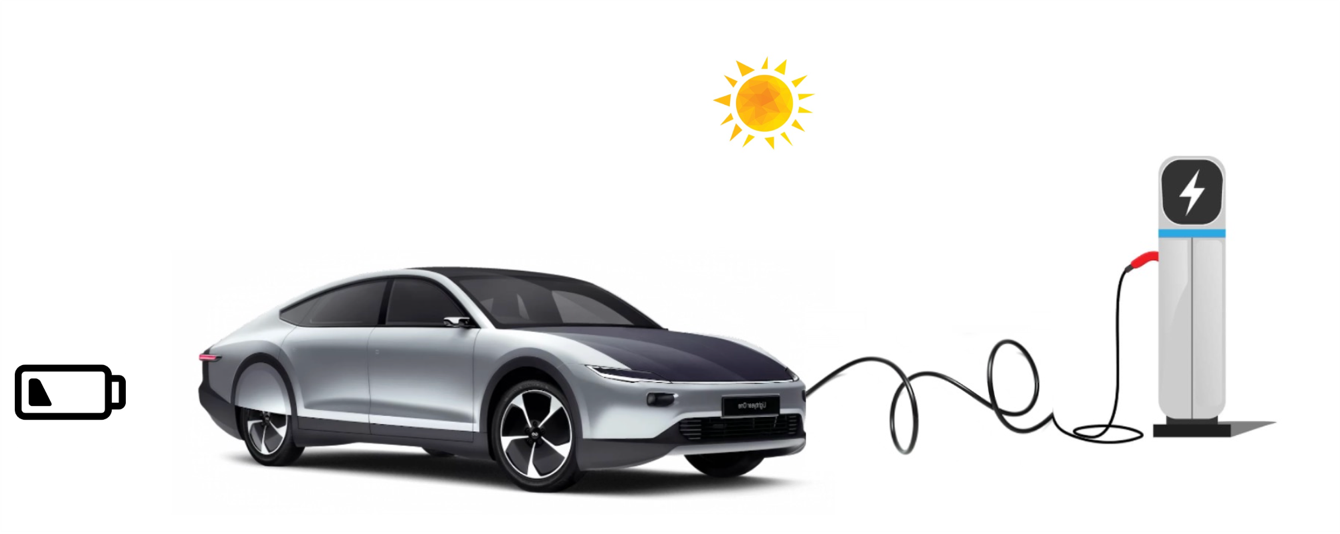Model-Based Impact Analysis of Vehicle-Integrated Photovoltaics and Vehicle-to-Grid on Electric Vehicle Battery Life
30 november 2022 13:00 t/m 02 december 2022 09:45 - Locatie: Timmanzaal, LB01.170 - Door: DCE&S | Zet in mijn agenda
MSc thesis of Antonios Kouzelis
Electric vehicles (EVs) equipped with vehicle-integrated photovoltaics (VIPV) and EVs with vehicle-to-grid (V2G) technology can support in overcoming power grid challenges emerging from the energy transition. Despite the widespread benefits that VIPV and V2G have to offer, their potential impact on battery life governs their economic viability. A model-based impact analysis is conducted to determine the impact of VIPV and V2G on EV battery life. Different use case scenarios, with and without the use of V2G and VIPV, are simulated to generate sets of one-year EV battery data. These battery data sets are implemented in battery ageing models from literature to quantify calendar and cycling ageing for each scenario. The ageing results are used to analyse the impact of V2G and VIPV on battery calendar and cycling ageing. VIPV has been found to be able to reduce the grid charging frequency by 23% in the Netherlands and 44% in Spain, allowing the battery to range at lower SoC, which can extend battery life. Ageing simulations suggest that VIPV-powered battery temperature regulation can extend NMC battery life by 4.6 years, allowing for 88,000 km of additional driving range before the battery reaches its end of life. Further research on the impact of VIPV on battery life would help develop a strategy that optimally balances VIPV power used for battery charging and for battery temperature regulation. This study shows promising initial findings on methods to reduce battery ageing, which could further improve the business case of VIPV and V2G, accelerating the transition to sustainable mobility.
